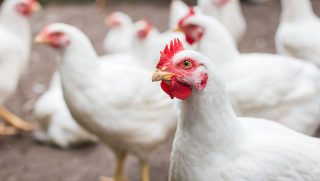While the coronavirus has been in the United States for a few weeks, consumers have just recently started to feel the affects of the virus. Hand sanitizer cannot be found on shelves or online, toilet paper is flying off out of stores, ag conferences are being canceled, and colleges are moving classes online in order to get ahead of the spread of the disease. However, those items do not show a full picture of the impact of the coronavirus.
The fallout from an ongoing labor shortage facing the U.S. pork industry and other agriculture sectors could significantly worsen due to the impact of COVID-19, the National Pork Producers Council said in a letter to U.S. government officials today. NPPC’s concerns regarding COVID-19 are labor specific. There is no evidence that pigs can contract the virus.
In a letter to the president and other administration officials, members of Congress, and state governors, NPPC called for expedited solutions addressing the need for more workers on hog farms and in pork plants. It also called on federal, state and local governments to work together to develop a response to COVID-19 that protects public health and, whenever possible, supports animal care and minimizes disruptions to the U.S. pork production supply chain and consumers. NPPC also called on the administration to develop support plans for hog farmers if labor-related bottlenecks in the supply chain prevent hogs from being marketed.
“School closures preventing parents from going to work and caring for their animals are already a concern in farm and plant communities,” said NPPC President Howard “A.V.” Roth, a hog farmer from Wauzeka, Wisconsin. “The specter of market-ready hogs with nowhere to go is a nightmare for every pork producer in the nation. It would result in severe economic fallout in rural communities and a major animal welfare challenge.”
The U.S. pork industry relies on foreign labor and needs a stable workforce. Even without the additional challenge presented by COVID-19, the labor shortage threatens to increase production costs and food prices for consumers. Existing visa programs are designed for seasonal agriculture, and reform is needed to address the animal care and other requirements of year-round livestock agriculture.
In addition to the pork industry, consumers are reportedly avoiding touching fresh fruits and veggetables and stocking up on more canned food and packaged items due to the coronavirus.
However, there is a small silver lining. According to Reuters, “Some ethanol producers worldwide said demand is up for their products due to customers stockpiling hand sanitizer — which can be made using the biofuel — as the coronavirus outbreak worsens.”
This is just the beginning of how the coronavirus will affect the agriculture industry. U.S. Ag Secretary Sonny Perdue announced proactive flexibilities to allow meal service during school closures to minimize potential exposure to the coronavirus.


